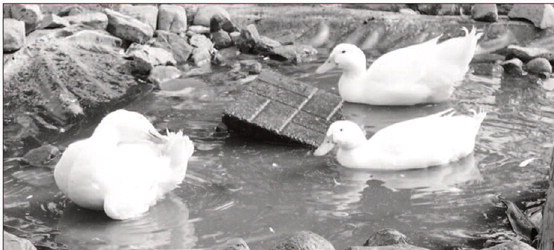A hobby farm with a purpose
Momo Acres in Clark County offers refuge for abandoned ducks


On a quiet, three-acre plot of land filled with small ponds, cover, and open land to roam, dozens of ducks wander the grounds of Momo Acres, a domestic duck rescue located just a few miles northwes...




